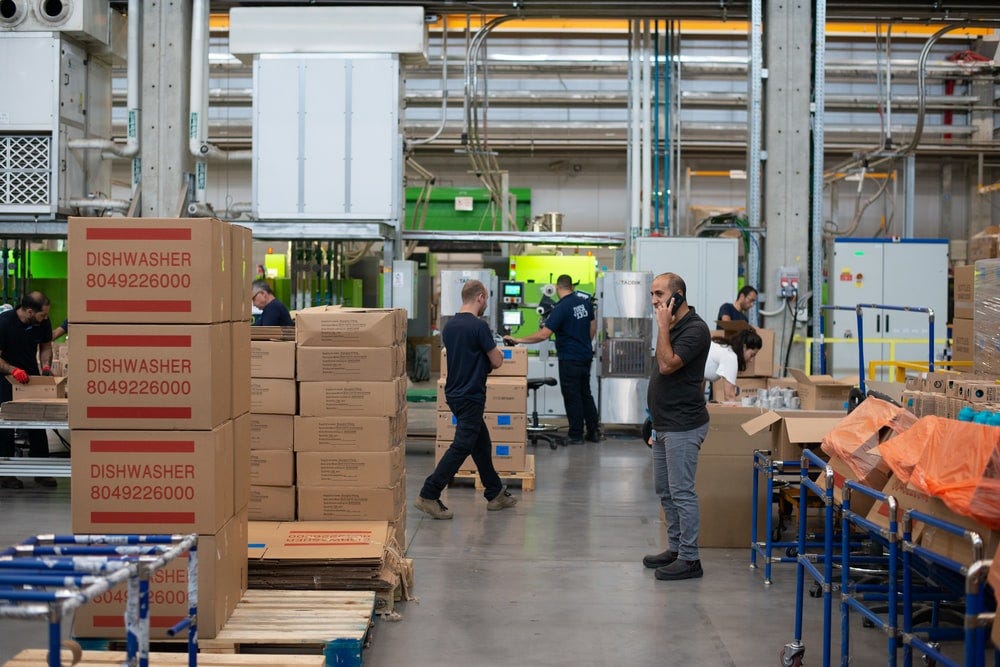Dionne Pohler: Ontario has a better option than paid sick days
A targeted basic income for low-income workers is a superior policy option to legislated paid sick days.
By: Dionne Pohler
Every Ontarian and their dog seems to be yelling at Premier Doug Ford to legislate paid sick days for workers. A lifetime ago, in March 2020, I wrote a piece with some colleagues about the need to introduce a basic income in Canada targeted to low-income workers during the pandemic.
We proposed that low-income workers should get a supplementary basic income whether they were working or not. The rationale was that the lowest-income workers were most likely to either lose their jobs with little access to Employment Insurance, or to continue working outside the home in essential roles. My subsequent academic research (with Kourtney Koebel) indeed showed that while many low-income workers lost their jobs, other low-income workers worked more hours during the pandemic, and disproportionately more so than higher-income workers. We referred to this as the “double-liability” of low-wage work during COVID-19.
A year into this mess, I still think I had the right idea: a targeted basic income for low-income workers is a superior policy option to legislated paid sick days.
We should have three policy objectives during this crisis. The first: facilitating the safe and ongoing operation of businesses that employ low-income workers. The second is ensuring these essential workers have the ability to choose their preferred level of exposure to the virus when working outside the home, and to refuse unsafe work. The third is providing low-income workers an alternative income source so they can afford to stay home from work when they are sick.
Legislating paid sick days for workers is not a good policy response to meet any of these objectives.
Businesses are already struggling, and shouldn’t be forced to bear the cost of paying workers who can’t work because of illness or fear of the virus.
Further, if legislated paid sick days cause worker absenteeism to rise — that is, after all, precisely what it is supposed to do — employers may respond by laying workers off. Under this scenario, workers may be afraid to take their paid sick days for fear of losing their jobs, which defeats the entire purpose.
Other research I’ve done shows that organizational compliance with employment regulations is highest in unionized workplaces — and most those already have paid sick days. Paid sick days legislation would mostly impact non-unionized workplaces and thus require a huge amount of government enforcement to ensure compliance. We had very little enforcement capacity of employment standards in Ontario even before the pandemic started, and the provincial government has even less capacity today.
The other option would be a paid sick leave program funded and administered by the provincial government. I fear this would inevitably devolve into an administrative nightmare.
We should expect businesses to provide job-protected leave for worker illness, and to maintain safe workplaces, but they should not be forced to pay for workers’ sick leave during a pandemic, and the provincial government is not equipped to manage a province-wide paid sick leave program. A possible remedy could be levying fines on businesses that experience major COVID outbreaks due to negligence, but any larger, deeper enforcement operation is likely not practical to establish in a timely manner.
So what does that leave? A targeted basic income supplement paid to all low-income workers, regardless of their work status. This option minimizes power imbalances between businesses and low-income workers by providing the workers with an alternative income source they can count on throughout the crisis.
A targeted basic income would have also been a better policy response than the plethora of new federal and provincial income support and wage subsidy programs that were created, but that is a topic for another day.
Perhaps most importantly, a targeted basic income could be framed as a collective societal “thank you” to low-income essential workers who continue to work outside the home throughout the pandemic, while the rest of us relieve our guilt by tweeting from our comfortable home isolation about the unfairness of it all.
Dionne Pohler is an associate professor at the University of Toronto, acting director of the Centre for Industrial Relations and Human Resources and the CIBC Chair in Youth Employment.
The Line is Canada’s last, best hope for irreverent commentary. We reject bullshit. We love lively writing. Please consider supporting us by subscribing. Follow us on Twitter @the_lineca. Fight with us on Facebook. Pitch us something: lineeditor@protonmail.com


I'm all in for UBI or UBI supplements. Some recipients may cheat but the majority would be helped through rough times. My thought has always been UBI would help those that need help and those that use BI would be stimulating their
demographic, very little of that money would leave their neighborhood and very little would leaving the country. So the government gets it all back eventually. If BI could replace some of the degrading and over stuffed bureaucratic assistant programs currently in place that would be a bonus.
As a retired pediatric nurse, I remember how difficult it was to get low-wage parents in for teaching when their child was diagnosed with a chronic illness. These teaching sessions could be very complex, and required many visits to the hospital. The parents had to choose between doing the best for their child vs less (or no) income that week. Brutal.